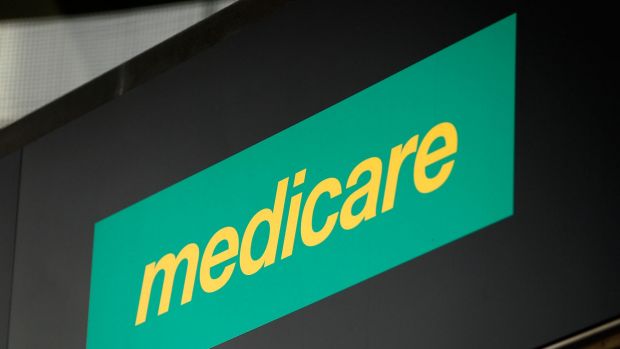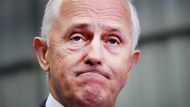All high-income Australians would pay the 1 to 1.5 per cent Medicare levy surcharge under a budget proposal that would raise a breathtaking $4 billion per year, more than six times the net amount saved in the first Turnbull budget.
At present only high-income Australians without private health insurance are made to pay the extra levy.
More National News Videos
Medicare freeze may end
Malcolm Turnbull has given the clearest indication yet that the freeze on the medicare rebate given to GP's may soon end.
Extending it to all families earning more than $180,000 per year and all individuals without children earning more than $90,000 per year would raise at least $900 per year more from each high-income Australian with private health insurance, and would offset the removal of the high-income temporary budget deficit repair levy, which expires in the middle of this year.
"In 2013 there was bipartisan agreement, and broad public support, for an increase of 0.5 percentage points in the Medicare levy to help fund the National Disability Insurance Scheme," said Australian Council of Social Service chief executive Cassandra Goldie.

"One option to address the revenue challenge would be to increase the levy by a further 0.5 points to 2.5 per cent. But our preferred option, which would raise a similar amount, is to remove the exemption for holders of private hospital insurance from the high-income surcharge. It would affect only those households very likely to have a capacity to pay."
The ACOSS budget submission says the change would be unlikely to significantly affect private health insurance cover as the households concerned were unlikely to be "income-constrained". Even if it did, it would make little difference to the cost of government health care.
The total savings package put forward by ACOSS amounts to $9.5 billion per year.
Other savings include removing the Private Health Insurance Rebate ($3.4 billion per year), axing the Extended Medicare Safety Net, "which mainly benefits higher income earners using relatively expensive health services" ($340 million), axing fuel tax credits for off-road use that are mainly used by mining companies ($2 billion), winding back the capital gains tax discount ($500 million), phasing out negative gearing ($300 million) and lifting the superannuation preservation age from 60 to 67 over 15 years.
Half of the savings from removing the Private Health Insurance Rebate would be directed to public hospitals, community-based health services, dental health services and preventative health services. ACOSS would also boost Newstart and other payments by $54 per week at a cost of almost $2 billion per year.
"Without cuts of the kind we have proposed, it is clear that governments will not be able to fund the cost of essential services to the level we need," Dr Goldie said.
"What's not reasonable are cuts that would require people who need to see a doctor or attend hospital or move into aged care to pay more."
ACOSS has also asked the government to drop the remaining so-called zombie measures from its unpopular 2014 budget which have still not made it through the Senate.
Finance Minister Mathias Cormann said on Sunday he hadn't given up on some of those measures and was not "prepared to put up the white flag".
















217 comments
Comment are now closed